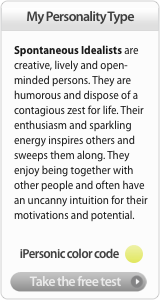
John Lennon was inducted into the Rock and Roll Hall of Fame in 1994. The following information was obtained from the Rock and Roll Hall of Fame:
John Lennon didn't invent it rock and roll, nor did he embody it as toweringly as figures like Elvis Presley and Little Richard, but he did more than anyone else to shake it up, move it forward and instill it with a conscience. As the most daring and outspoken of the four Beatles, he helped shape the agenda of the Sixties - socially and politically, no less than musically. As a solo artist, he made music that alternately disturbed and soothed, provoked and sought community. As a human being, he served as an exemplar of honesty in his art and life. As Jann Wenner wrote in the foreword to a collection of writings entitled The Ballad of John and Yoko, "Of the many things that will be long remembered about John Lennon - his genius as a musician and singer, his wit and literary swiftness, his social intuition and leadership - among the most haunting was the stark, unembarrassed commitment of his life, his work and his undernourished frame to truth, to peace and to humanity."
Lennon was born in 1940 during the Nazi bombing of Britain and given the middle name Winston, after prime minister Churchill. Knowing firsthand the horror of a world at war and living through the era of Vietnam's senseless carnage as well, Lennon came to embrace and embody pacifism via such classics of the Beatles era as "All You Need Is Love" and "Strawberry Fields Forever." Yet he also had a countervailing dark side that found expression in pained outcries that dated as far back as "Help." This unvarnished aspect of the Lennon persona reached a fevered pitch with the drug-withdrawal blues of "Cold Turkey," a 1969 single released under the name Plastic Ono Band.
Although Lennon was a complicated man, he chose at this juncture to simplify his art in order to figure out his life, erasing the boundaries between the two. As he explained it, he started trying "to shave off all imagery, pretensions of poetry, illusions of grandeur...Just say what it is, simple English, make it rhyme and put a backbeat on it, and express yourself as simply [and] straightforwardly as possible." His most fully realized statement as a solo artist was 1970's John Lennon/Plastic Ono Band. Lennon's first solo album, it followed several avant-garde sound collages recorded toward the end of the Beatles era with his wife and collaborator, Yoko Ono. The raw, confessional nature of Plastic Ono Band reflected the primal-scream therapy that Lennon and Ono had been undergoing with psychologist Arthur Janov.
There were, in fact, numerous facets to Lennon's character captured in the ongoing diary of his life in song. Many of his post-Beatles compositions - "Imagine," "Mind Games," "Instant Karma," and "Give Peace a Chance" - have rightfully become anthems, flaunting tough-minded realism, cosmic epiphany, hard-won idealism and visionary utopianism in equal measure. For all of the unvarnished genius of Lennon's recordings, however, much of what lingers in the public memory goes beyond musical legacy. Rather, it has to do with leading by example. The relationship between John and Yoko endured challenges from within and without to became one of the most touching and celebrated of 20th-century romances. They were gallantly foolish in undertaking performance art pieces - bed-ins, happenings, full-page ads declaring "War Is Over!" - to spread their message of peace. During the early Seventies Lennon fought the U.S. government to avoid deportation - a campaign of harassment by Nixon-era conservatives that was overturned by the courts in 1975 - and came to love his adopted city of New York.
Then there were those five quiet years when Lennon chose to lay low and raise their son, Sean Ono Lennon. Simply by stepping back and "watching the wheels" from the sidelines, John Lennon made a statement about priorities that said more than words and music. His eventual return to the recording scene in 1980 after that lengthy hiatus - his last album of original songs had been 1974's Walls and Bridges - was one of the more eagerly anticipated musical events of the year. The album Double Fantasy, jointly credited to John Lennon/Yoko Ono, was released on December 6th. Two days later, a brilliant life came to an untimely end when John Winston Lennon was fatally shot by a deranged fan outside his New York City apartment upon returning from a recording session.
I loved the Beatles. I had a schoolgirl crush on Paul when they first came to the US. Later John appealed more to the hippie in me. I think I wore out the grooves in my Abby Road album that was always playing in my dorm room. It's sad to think on what we missed out on from this wonderful and talented man.
10 years ago




3 comments:
John was my favorite Beatle. His whole aura appealed to me.
Optimist/pessimist,earnest/sarcastic, angel/devil,sweet songs/painful songs.
I remember that Monday night football was on and Howard Cosell (of all people) made the anouncement that Lennon had been shot and killed in NY City.
A paradox of a man. So much lost.
A sad day.
John was my favorite too. He was just so cool.
Have you ever considered about including a little bit more than
just your articles? I mean, what you say is valuable and all.
Nevertheless imagine if you added some great visuals or video clips to give your posts more,
"pop"! Your content is excellent but with pics and clips, this site could certainly
be one of the very best in its field. Awesome blog!
Here is my web page: can you get minecraft for free
Post a Comment